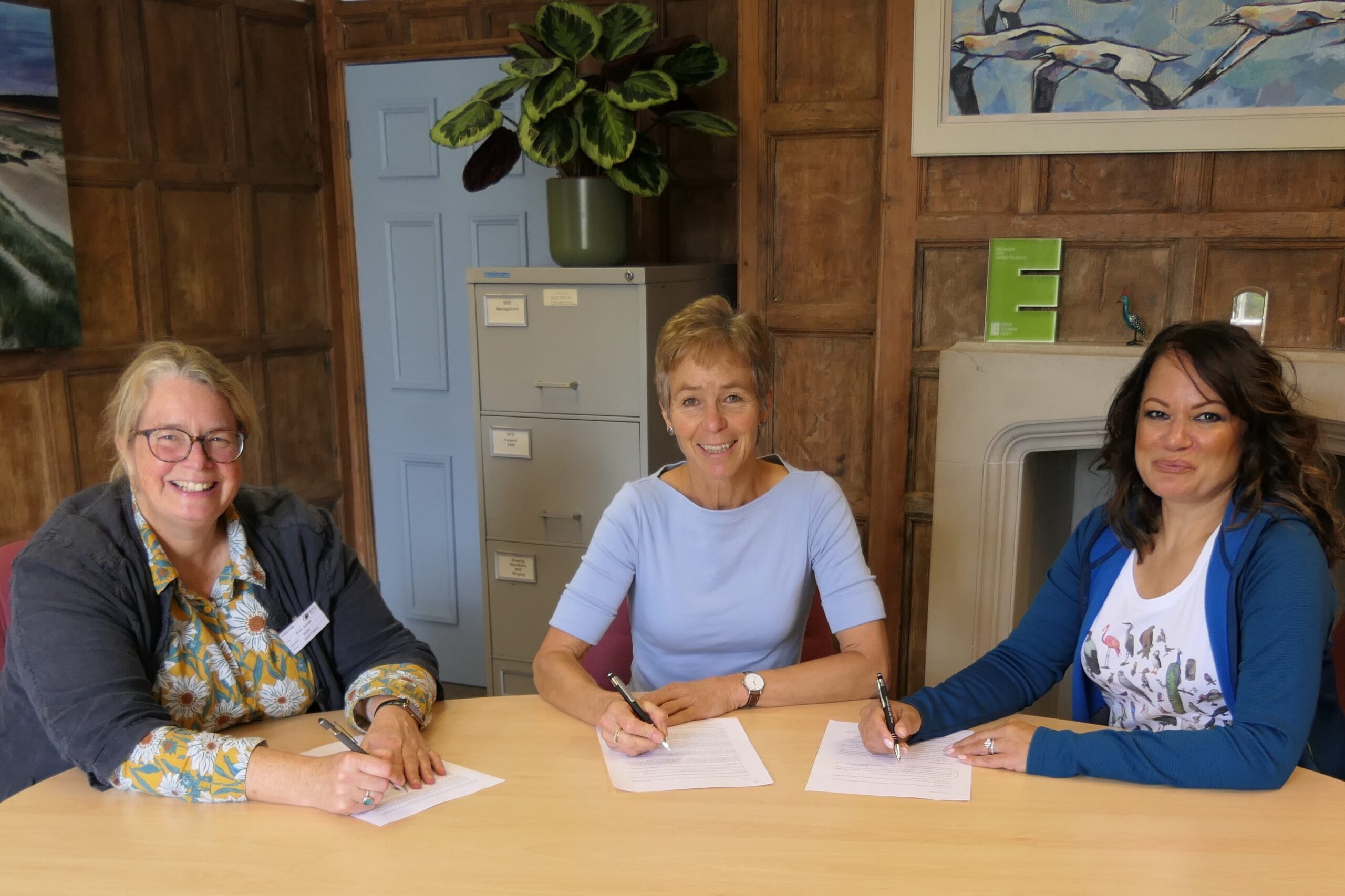Hope soars for UK birds
as new partnership signed

Three leading conservation organisations have signed
a new agreement that will help to secure the future of
bird conservation in the UK.
The chief executives of the British Trust for Ornithology (BTO),
Joint Nature Conservation Committee (JNCC) and Royal Society
for the Protection of Birds (RSPB) reaffirmed their longstanding commitment to the long-term bird monitoring schemes
that underpin so much conservation science and action.
Birds are brilliant indicators of how the wider natural world is faring. Monitoring their populations can help us understand what is changing and guide policies and land management to secure a better future for birds, people and the environment. Much-loved species like Swift and Greenfinch are rapidly disappearing from the UK, but others, such as Red Kite, are increasing thanks to dedicated conservation efforts.
We know this because of the thousands of committed and highly skilled volunteers who give their time to record information about our bird populations. Together with the scientists who interpret the data, they help us to understand more about the ongoing biodiversity crisis, the impacts of climate change, and the urgent need for evidence to guide what we can do to protect nature from these and other threats. The new agreement, a funding partnership that covers the period 2022–2027, is surely needed now more than ever.
For decades, BTO has organised the UK Breeding Bird Survey (BBS) and Wetland Bird Survey (WeBS), as well as both bird ringing and nest recording. The charity has now taken on additional responsibility for the Seabird Monitoring Programme (SMP) and the Goose and Swan Monitoring Programme (GSMP). This means BTO now delivers the full suite of bird monitoring programmes, providing data on the abundance of around 190 species. BBS, WeBS and SMP are funded jointly by BTO, RSPB and JNCC, while GSMP receives funds from BTO, JNCC and NatureScot.
BTO Chief Executive, Professor Juliet Vickery, says: ‘Citizen science has the power to reveal so much about birds and the natural world. Its extraordinary value also lies in the way it connects people with nature, increasing awareness and engagement at the same time as delivering recognised benefits to health and wellbeing.
Last year alone our volunteers gave more than two million hours of their time to BTO work. Their dedication is remarkable, but our world is changing. Citizen science gives us exactly the kind of long-term data we need if we want to address the twin crises of climate change and biodiversity loss.’
JNCC Chief Executive, Dr Gemma Harper, says: ‘Collaboration is at the heart of everything we do and we are delighted to continue to support this critical partnership. Long-term surveillance programmes such as these, and the datasets they produce, have underpinned our work for over 30 years, and are essential to nature conservation and recovery. Only by identifying and understanding how biodiversity is changing can we strive for nature that is diverse, abundant and resilient.’
RSPB Chief Executive, Beccy Speight, says: ‘We’re delighted this vital partnership is to be renewed and developed. During this nature and climate emergency, these critical monitoring schemes enable us to identify, prioritise and, ultimately, resolve the most pressing of conservation threats. Increasing participation to expand the already-impressive volunteer force will mean more data, better analysis, and stronger protection for UK nature. Together, we can really make a difference.’






